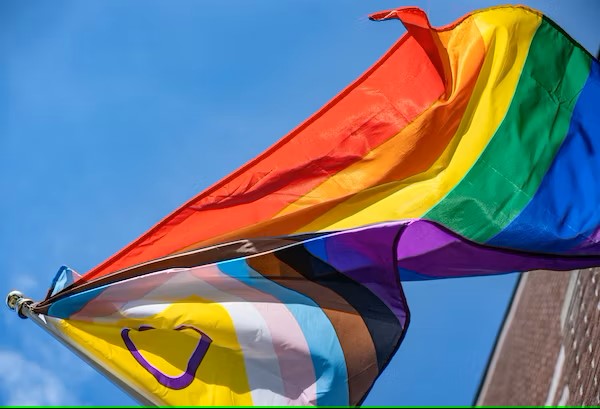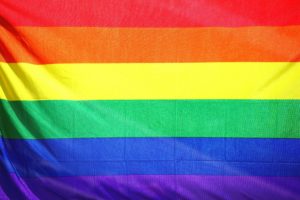As we mark Pride Month and extend our support for the rights and inclusion of LGBTQ+ people worldwide, Sarah Lamble, Reader in Criminology and Queer Theory, writes on the recent backlash against LGBTQ+ rights and the need for international solidarity.
June is a month of celebration and pride for LGBTQ+ communities, both in Britain and around the world. For many, Pride Month is an important time to reflect on the struggles and achievements of LGBTQ+ communities. Amidst the glittery street parties and marches, the community events and rainbow-emblazoned festivities, it is an opportunity to gather in both queer joy and protest. As many will know, the origins of Pride Month can be traced back to historic events in June 1969—the uprising at the Stonewall Inn in New York City by working class queers of colour, drag queens, sex workers, and street folk who resisted ongoing police violence and brutality.
While much has changed since then, many of the fundamental problems persist, particularly for those in the LGBTQ+ community facing intersecting forms of economic and social insecurity. Many of the same groups within our communities that were most targeted back then, remain acutely vulnerable to violence, harassment, and discrimination today. In Britain and around the world, LGBTQ+ people are still disproportionately targeted by policing and imprisonment; face high risk of homelessness; persistent discrimination in employment and health care; and are subject to heightened risks of violence, mental health distress and even death because of systemic inequalities.
We are currently seeing a growing backlash against LGBTQ+ rights at home and abroad. Many have raised alarms about the rise of far-right anti-LGBTQ+ and anti-migrant groups across Europe, the anti-homosexuality bill recently passed in Uganda, and the attacks against LGBTQ+ rights in the USA. In fact, so many anti-LGBTQ+ bills have been proposed across US state legislators, that community organisers recently declared an LGBTQ+ state of emergency.
In Britain, LGBTQ+ communities are also facing increasing threat. In a recent country visit to the UK, the UN Independent Expert on protection against violence and discrimination based on sexual orientation and gender identity, Victor Madrigal-Borloz, expressed deep concern about increasing hostilities against LGBTQ+ people. Highlighting rising incidents of harassment and threats of violence against LGBTQ+ people in the UK, Mr Madrigal-Borloz attributed this backlash, in part, to a relentlessly hostile media and the ‘the toxic nature of public debate surrounding sexual orientation and gender identity’. There is much work needed to address this, yet we are moving in the wrong direction. Most recently, British MPs formally considered proposals to amend the Equality Act 2010 that would seriously erode the hard-won rights and protections currently afforded to trans and gender diverse people.
Now, perhaps more than ever, it is necessary to remember that pride is political and the need for cross-movement and international solidarity is paramount. Although our struggles may differ across contexts, we have a shared interest in joining together to combat systemic discrimination and ensure equality and freedom for all LGBTQ+ people.
Further Information:
- Read more about the Gender, Sexuality and Criminal Justice module
- Watch the video on the MSc Criminology with Gender, Sexuality and Criminal Justice pathway
- Department of Criminology
- Read Birkbeck’s Equality and Diversity statement



